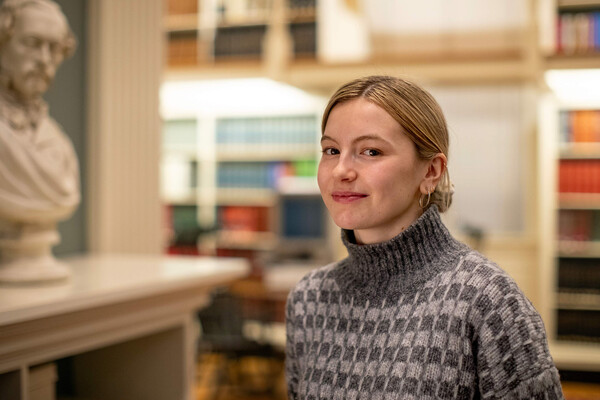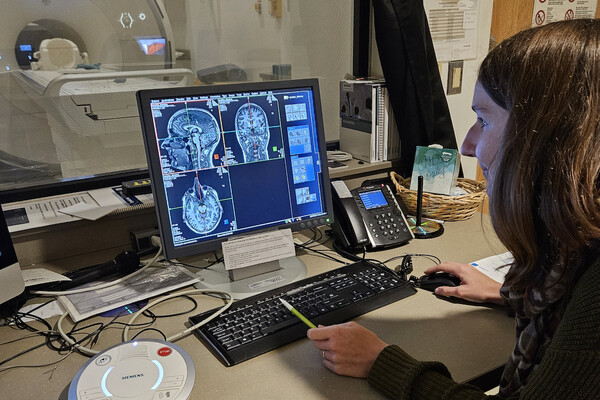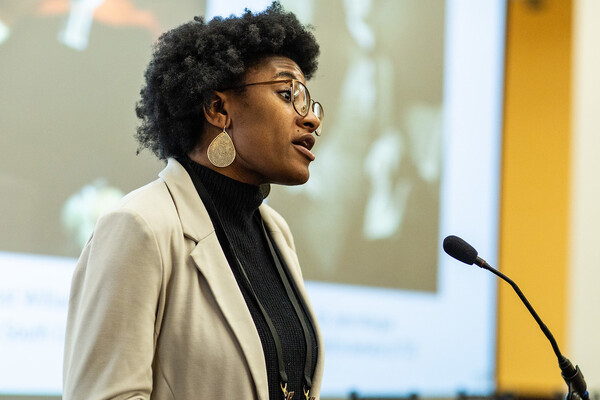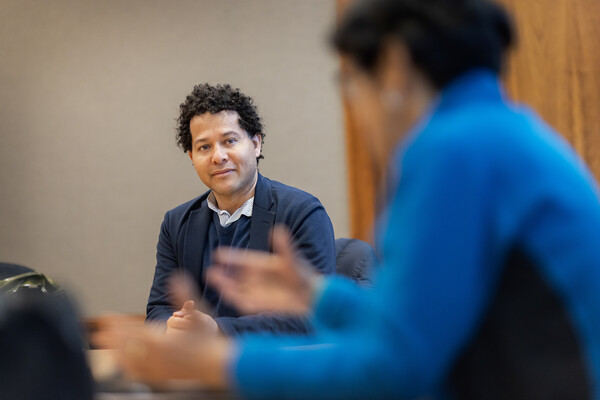
Molly Leech is a fourth-year doctoral candidate in the School of Arts &N Sciences Department of History.
(Image: Brooke Sietinsons)

Molly Leech is a fourth-year doctoral candidate in the School of Arts &N Sciences Department of History.
(Image: Brooke Sietinsons)

Image: iStock/olejnik

Sixth-year Ph.D. student Clara Raithel looks at an anatomical brain scan taken from a previous study participant.
(Image: Courtesy of OMNIA)

Image: Courtesy of OMNIA
 Abortion rights advocates and anti-abortion advocates demonstrate at the U.S. Supreme Court.
Abortion rights advocates and anti-abortion advocates demonstrate at the U.S. Supreme Court.(Image: DJ McCoy/iStock)

Doctoral candidate VanJessica Gladney speaking at Penn Spectrum Weekend in 2019.
(Image: Eddy Marenco)

Harry Belafonte speaking for peace and against nuclear weapons in 1981 in Bonn, Germany.
(Image: Klaus Rose/AP Images)

On the trip to D.C. in March, students including Christiana Dillard (far right) visited the Lincoln Memorial (above) and many other sites, interviewing visitors about the meanings they derive from each.
(Image: Kyle Cassidy)

Homepage image: This semester, Castrillón is co-teaching Critical Qualitative Research and Intentional Torts with Regina Austin of Penn Carey Law and Alissa M. Jordan, director of Penn’s Center for Experimental Ethnography.
nocred

(Image: iStock)